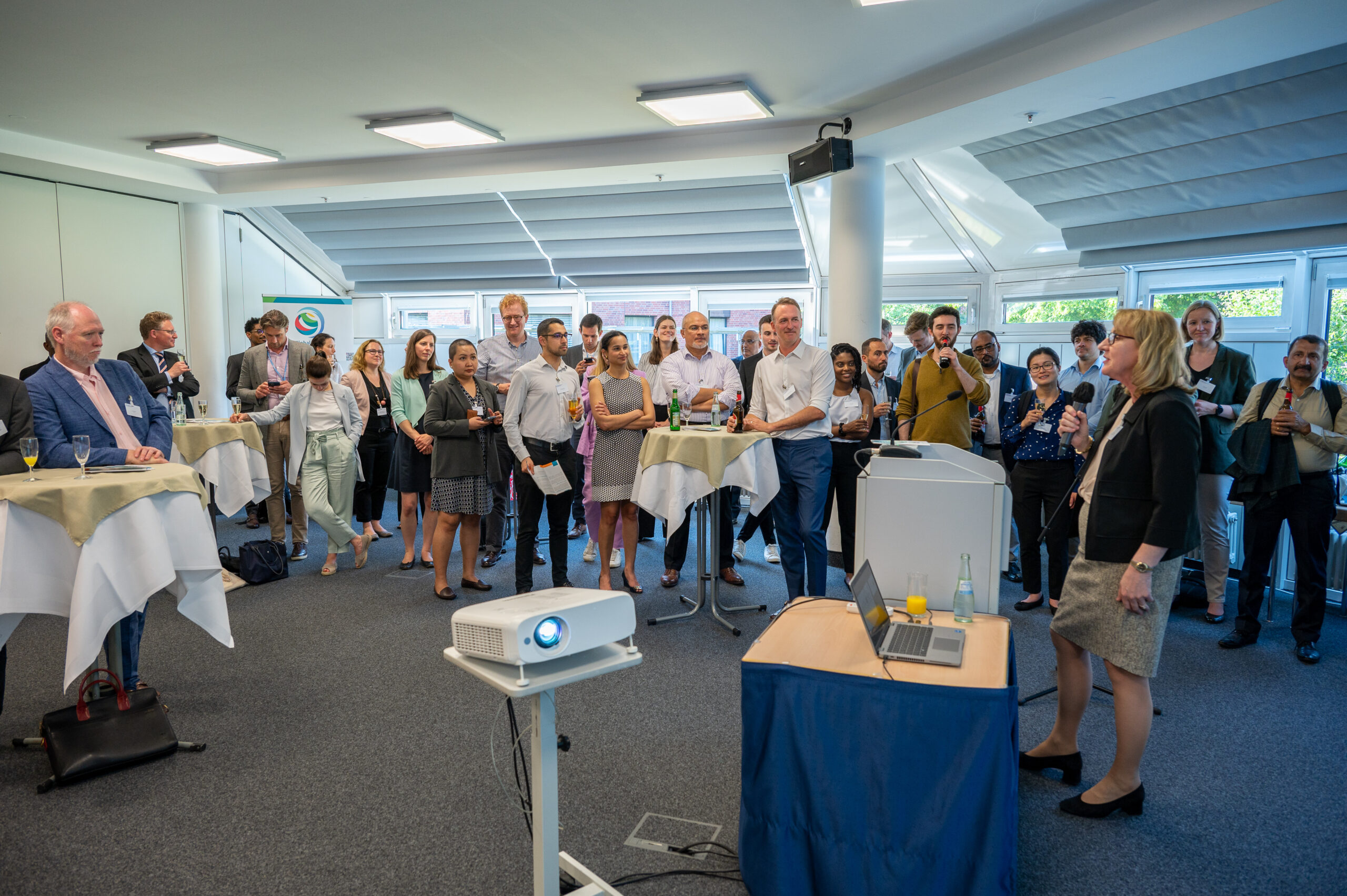The Global Shield Solutions Platform (GSSP) is a new financing vehicle helping vulnerable countries to address effectively loss and damage exacerbated by climate change. It was launched at the occasion of the InsuResilience Global Partnership Annual Forum on 9 June 2023, which was held at the Gustav-Stresemann-Institute in Bonn, Germany.
Climate risks continue to increase, particularly for lower income countries and vulnerable communities leading to more frequent and intense extreme weather events. In response to the mounting losses and damages due to climate change, the Vulnerable Twenty (V20) Group of Ministers of Finance and the G7 agreed to work towards a Global Shield against Climate Risks. Through its financing vehicles, the Global Shield will provide coherent, sustained, and better-coordinated financial protection against climate risks.
The Global Shield Solutions Platform (GSSP) is a multi-donor grant facility and one of the central financing vehicles of the Global Shield. It is mandated to support Global Shield partner countries in developing and implementing financial instruments that provide better preparedness and more reliable disaster response. Increasing pre-arranged finance,which disburses funds quickly and reliably before or just after disasters happen, like regional risk pools, contingency funds or shock resilient loans, can lower the impacts of disasters, make vulnerable countries’ economies more resilient and thus save lives and livelihoods in vulnerable countries.
The GSSP provides comprehensive support to vulnerable countries. It offers advice and grant funding for research and education as the groundwork for locally adapted financial solutions. Furthermore, funding the development and subsequent application of climate and disaster risk finance and insurance solutions the GSSP contributes to increasing financial protection of vulnerable countries.
The GSSP is managed by Frankfurt School of Finance & Management. Its initial financial contributors are the Federal Republic of Germany, France and Denmark.
Time is not on our side and only waiting for solutions would be an injustice. The GSSP is a hallmark of collaboration among the climate vulnerable economies and advanced economies. The platform is a recognition that it would be unfair to let climate vulnerable economies whose people are least responsible for the crisis carry the risk of rapidly crumbling cliffs of financial and social protection. GSSP brings new resources to leverage the full potential of the pre-arranged finance toolkit to accelerate the building of protection systems.
Sara Ahmed, V20’s Finance Advisor
Increasing the resilience of vulnerable people in the Global South against climate risks is at the heart of the Global Shield against Climate Risks and a priority of Germany’s engagement on climate policy. Together with our partners, we therefore support the initiative and I congratulate the Global Shield Solutions Platform on its successful launch. GSSP is one of the central financing vehicles under the Global Shield and helps to avert and minimise losses and damages caused by climate change. With its needs-driven, inclusive approach, the GSSP will make an important contribution to achieving the Global Shield’s ambition to protect the lives and livelihoods of vulnerable people and communities.
Dr. Bärbel Kofler, Parliamentary State Secretary to the German Federal Minister for Economic Cooperation and Development
When it comes to facing climate change impacts, what we need is solidarity, confidence and inclusive protection towards the most vulnerable countries and communities. This is what the Global Shield is about, and this is the reason why France is committed to support this important and innovative initiative. On the pathway towards COP28 and a few days ahead of the Summit for a New Global Financing Pact in Paris, we need more than ever a collective, ambitious commitment to building global resilience and prosperity.
Ms Chrysoula Zacharopoulou, Minister of State for Development, Francophonie and International Partnerships
The Global Shield Solutions Platform provides an important tool to scale up pre-arranged finance, which is critical in addressing the risks of loss and damage. Designed to increase the protection of climate vulnerable populations, the GSSP provides an important part of Denmark’s contribution for responding to loss and damage.
Lotte Machon, State Secretary for Development Policy, Ministry of Foreign Affairs of Denmark
The Global Shield Solutions Platform represents a major step forward in giving the Global South a voice in jointly building local financial capacity and increasing the effectiveness and efficiency of post-disaster response. We welcome the opportunity to host the GSSP at Frankfurt School of Finance & Management. We build on our experience of providing sustainable and innovative CDRFI solutions. We value the commitment and expertise of our contributors, and the important role of the V20 in setting up the Global Shield and supporting the GSSP.
Dr. Annette Detken, Head of the Global Shield Solutions Platform
Background
The Global Shield builds on the InsuResilience Global Partnership which the V20 and G20 previously introduced with a goal of protecting 500 million people in climate vulnerable countries by 2025. With its more more systematic, coherent, and sustained approach, the Global Shield involves a more extensive strategy that encompasses a significant expansion of these endeavors in order to provide significantly more financial resources for shock-responsive social protection, early and anticipatory action protocols, and contingency funds, combining the forces of the V20, the G7 and further members.
Formed in 2015, the V20 Group of Finance Ministers is a dedicated cooperation initiative of economies systematically vulnerable to climate change. It is currently chaired by the Republic of Ghana. The V20 membership stands at 58 nations including Afghanistan, Bangladesh, Barbados, Benin, Bhutan, Burkina Faso, Cambodia, Chad, Colombia, Comoros, Costa Rica, Côte d’Ivoire, Democratic Republic of the Congo, Dominican Republic, Ethiopia, eSwatini, Fiji, The Gambia, Ghana, Grenada, Guatemala, Guinea, Guyana, Haiti, Honduras, Kenya, Kiribati, Kyrgyzstan, Lebanon, Liberia, Madagascar, Malawi, Maldives, Marshall Islands, Mongolia, Morocco, Nepal, Nicaragua, Niger, Palau, Palestine, Papua New Guinea, Philippines, Rwanda, Saint Lucia, Samoa, Senegal, South Sudan, Sri Lanka, Sudan, Tanzania, Timor-Leste, Tunisia, Tuvalu, Uganda, Vanuatu, Vietnam, and Yemen.
The Group of 7 (G7) consists of Canada, France, Germany, Italy, Japan, the UK and the USA. The European Union also participates in G7 meetings. Japan took on the presidency from Germany on 1 January 2023.
